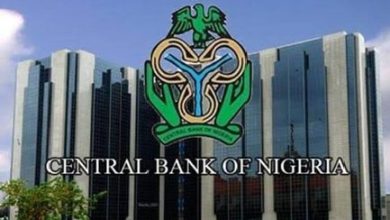Fuel Diversion Drops by 35% as DAPPMAN Commends NMDPRA’s Reforms
DAPPMAN hails NMDPRA for cutting fuel smuggling by 35% and boosting downstream sector stability.
Commends Farouk Ahmed’s leadership, urges continued collaboration for energy growth and reforms.
The Depot and Petroleum Products Marketers Association of Nigeria (DAPPMAN) has commended the Nigerian Midstream and Downstream Petroleum Regulatory Authority (NMDPRA) for reducing cross-border fuel smuggling by 35 per cent, attributing the progress to the regulator’s firm crackdown on illegal practices.
In a statement released on Monday, DAPPMAN’s Executive Secretary, Olufemi Adewole, highlighted the significant role NMDPRA has played in stabilizing Nigeria’s downstream oil sector. He said the regulator’s strategic oversight has not only boosted energy access but also spurred innovation and sustained growth in the industry.
“The firm, fair and functional leadership of the NMDPRA has enhanced operational efficiency, improved product availability, and restored investor confidence,” Adewole said.
He praised the leadership of NMDPRA Chief Executive, Farouk Ahmed, for transforming the downstream landscape and reiterated DAPPMAN’s commitment to partnering with the agency to ensure sustainable energy solutions across Nigeria.
Adewole credited NMDPRA’s collaboration with the Nigerian National Petroleum Company Limited (NNPC) and other key stakeholders for the recent reduction in fuel scarcity, noting that nationwide petrol supply had become more stable compared to previous years.
He also pointed to the regulator’s transparent policies and licensing framework as major catalysts for private-sector participation and new investments. He cited the approval of modular refineries as a key milestone, with $1.2 billion worth of investment recorded since 2022, according to the NMDPRA’s 2024 industry brief.
Among the achievements of the NMDPRA, he noted:
- A 35% drop in cross-border fuel diversion through stricter anti-smuggling enforcement, as detailed in an NNPC Security Report.
- Enhanced compliance and transparency via the Automated Downstream System, enabling real-time monitoring to curb hoarding and illegal sales.
- Improved fuel quality with a 98% compliance rate among major depots due to zero tolerance for adulterated products.
- Policy predictability that is helping operators make long-term investment plans.
Adewole further praised the Petroleum Industry Act (PIA) for empowering NMDPRA to drive market-based reforms, including the deregulation of the downstream sector and liberalized pricing.
“We’ve seen a more strategic approach to stakeholder engagement and compliance, with the authority promoting open dialogue to ensure its policies reflect market realities,” he said.
He added that enforcement of quality standards had drastically curtailed illegal refining while boosting the integrity of petroleum products in circulation.
DAPPMAN called on all players in the downstream sector to support NMDPRA in building a more competitive and investment-friendly environment that can foster innovation and energy sustainability.
“In the end, what the sector needs is continued collaboration to achieve full deregulation and significantly contribute to national economic growth,” Adewole stated.



